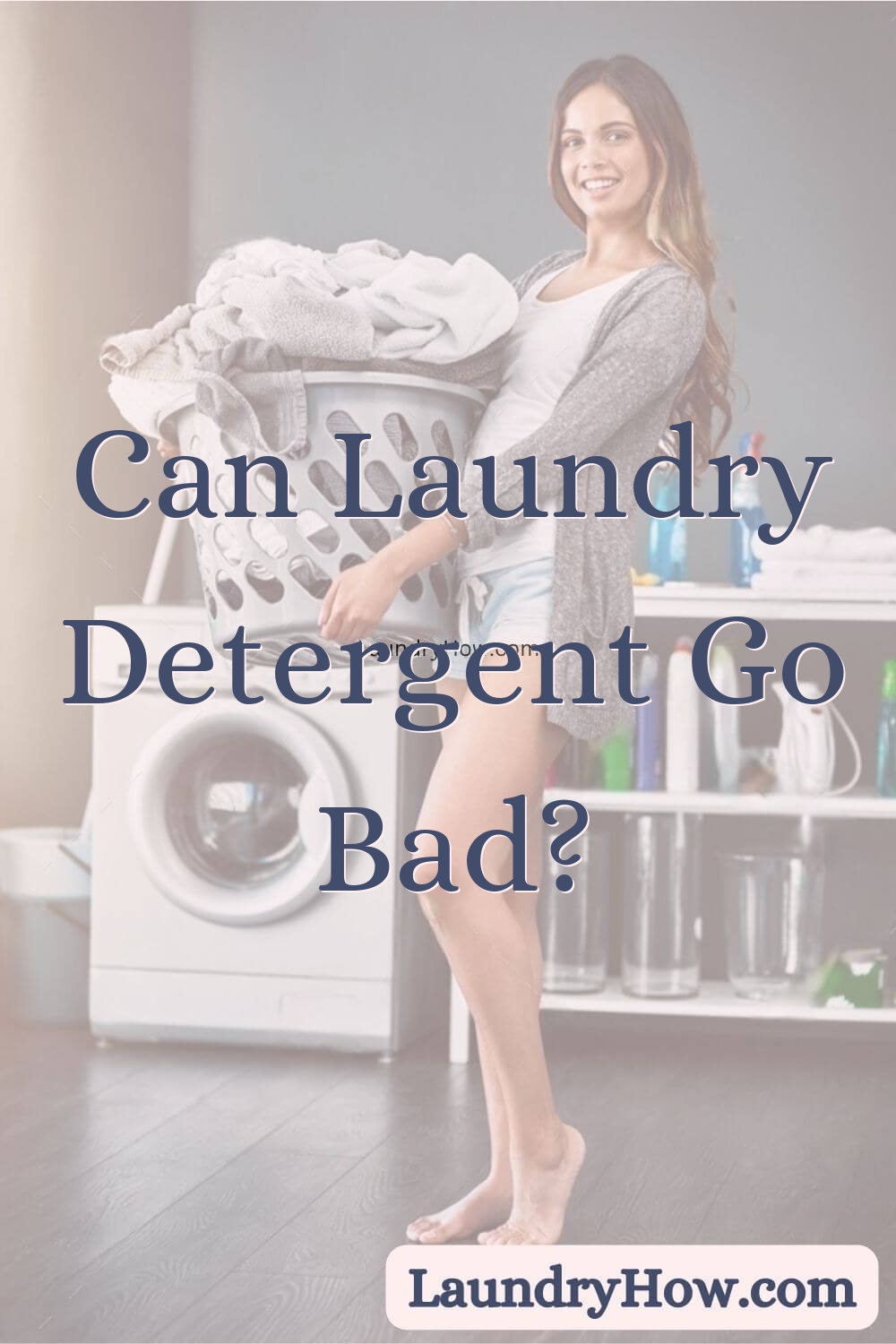Laundry detergent is something most households use on a regular basis to keep clothes fresh and clean.
But have you ever wondered – can laundry detergent actually go bad?
The short answer is yes, laundry detergent can expire and degrade in quality over time.
However, there are many variables that affect just how long your laundry soap will last before it goes bad. This article will explore everything you need to know about how to tell if your detergent has gone bad, what causes it to expire, how to prolong its shelf life, and when you should replace it.
What Causes Laundry Detergent to Go Bad?
Exposure to Air and Moisture
One of the biggest factors that leads to laundry detergent going bad is exposure to air and moisture. Laundry soap contains chemical ingredients that can interact with the oxygen and humidity in the air, slowly breaking down over time. Leaving the detergent bottle cap open or having it stored in a humid environment can accelerate this chemical reaction.
Temperature Fluctuations
Big swings in temperature can also impact the integrity and effectiveness of laundry detergent. If it repeatedly freezes and thaws, the formula can separate, leaving the ingredients unevenly distributed throughout the bottle. High heat can also degrade detergents. The best practice is to store laundry soap in a cool, dry place with minimal temperature fluctuations.
Contamination
If you’ve accidentally introduced a contaminant like dirt, food, or other liquids into your detergent bottle, it can also cause it to expire quicker. Bacteria and mold introduced through contamination can feed on the organic compounds in soap and multiply, rendering the formula ineffective. Always use a clean scoop when dispensing detergent and make sure to seal the bottle tightly after each use.
How to Tell When Your Laundry Detergent Has Gone Bad
Change in Consistency
One sign your laundry soap may have gone bad is a change in consistency. Good detergent generally has a viscous, glossy appearance and pours relatively evenly from the bottle. Over time, the formula can separate into watery and gel-like parts or become abnormally thick and gloopy, no longer dissolving properly in the wash.
Formula Separation
In addition to uneven consistency, separation of the liquid and solid parts of the formula is another red flag. You may notice a layer of murky water or sediment sitting at the top or bottom of the detergent bottle when the ingredients have started to break down.
Foul Odor
Laundry detergents are synthetically fragranced, so you should recognize the characteristic scent. An extremely sour, putrid or otherwise foul, unrecognizable smell coming from your detergent bottle is a tell-tale sign it has turned.
Factors That Impact Laundry Detergent’s Shelf Life
Ingredient Type
The average shelf life can vary amongst detergent formulas, largely depending on the type of cleaning agents used. Those containing bio-based enzymes generally have shorter life spans around 6 months. Meanwhile, varieties using optical brighteners and stain lifters may last 1-2 years when stored properly. Check your detergent bottle as many now list expiration timeframes.
Storage Method
How you store laundry detergent after opening it can have a significant impact on how long it lasts before expiring. As touched on already, keeping it in an area with high humidity and fluctuating temperatures will accelerate deterioration. Storing your detergent bottle properly sealed, away from light and heat, and in a cool, dry place optimizes freshness.
Bottle Size
An opened bottle of laundry detergent will expire faster than an unopened jug of the same formula. Larger containers have less surface area exposed to air upon opening compared to smaller bottles. This leaves less space for oxygen to interact with and degrade the ingredients. So if you don’t need a huge supply, consider buying detergent in smaller volumes to reduce waste from it expiring before the bottle runs out.
When to Toss Old Laundry Detergent While there’s no golden rule for precisely when all detergents should get tossed, here are some general guidelines for when to replace yours:
- 2 years after the manufacturing date: Laundry detergents typically start losing efficacy around the 2 year mark, even if stored properly and the bottle remains sealed. Check your detergent container for a “best by” stamp and consider replacing once this timeframe has passed.
- 6 months after opening: Once air and moisture start interacting with detergent, the countdown begins until it goes bad. Expect an opened bottle to start degrading in quality around 6 months post-opening.
- Change in appearance/smell: If you notice signs your laundry soap has separated, changed texture or scent as outlined above, it likely has gone bad and it’s time to replace it.
The Bottom Line Laundry detergent does have a finite shelf life and several variables like storage method, ingredients, and packaging impact how long it stays fresh. But keeping your formula properly sealed and stowed when not in use can prolong its lifespan significantly. So check your wash soap for signs its expired and refer to the timeframes above to reduce laundry disappointments!
References:
American Cleaning Institute. “How to Store and Prolong Shelf Life of Your Cleaning Products.” American Cleaning Institute. https://www.cleaninginstitute.org/cleaning-tips/how-store-and-prolong-shelf-life-your-cleaning-products
Good Housekeeping Institute. “Does Laundry Detergent Expire?” Good Housekeeping. https://www.goodhousekeeping.com/home/cleaning/a37462/does-laundry-detergent-expire/
The Spruce. “6 Signs Your Laundry Detergent Has Gone Bad.” The Spruce. https://www.thespruce.com/signs-your-laundry-detergent-has-gone-bad-5145742

Laura has had an enthusiasm for laundry ever since she was a teenager experimenting with wash cycles. She went on study textile science in college before working in product testing.
Soon, Laura found friends and family constantly asking her laundry advice, realizing she had become an unofficial laundry guru. The questions kept coming in, so Laura decided to start sharing laundry tips online to help more people. The enthusiastic response led her start the blog “Laundry How”.
Now in her late thirties, Laura uses Laundry How to tackle all kinds of laundry topics – stains, fabric care, detergents, and more. She provides advice from both her studies and experience testing techniques out firsthand. Laura continues to grow an engaged community of laundry learners, feeling fulfilled empowering people to make laundry an easy, confidence-building ritual rather than a dreaded chore.
